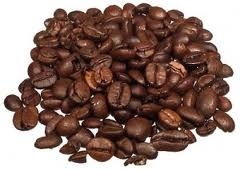 Apparently coffee enemas are all the rage these days, so it was time that I too got onto the bandwagon. (I am going to spare you the details and if you need detailed instruction, just google them.) Had my third today, all in preparation for my 10 day dry fast. The aim is to detox my liver as much as possible.
Apparently coffee enemas are all the rage these days, so it was time that I too got onto the bandwagon. (I am going to spare you the details and if you need detailed instruction, just google them.) Had my third today, all in preparation for my 10 day dry fast. The aim is to detox my liver as much as possible.
How Does it Work?
The last part of the large intestine is called the sigmoid colon. By the time fecal matter arrives here, its mostly devoid of nutrients, but contains numerous toxins resulting from putrefaction. A special circulatory system (enterohroatic circulation) exits here and its purpose is to deliver sigmoidal toxins directly to the liver for processing. This is the pathway that Caffeine and other chemicals contained in coffee use to pass directly to the liver, bypassing the main circulatory system in the process. This in turn stimulates detoxification and releases accumulated toxins through bile excretion. Endoscopic studies have confirmed that following a coffee enema, bile output is significantly increased within just a few minutes following its application.
Once bile production is stimulated, stored toxins are eliminated and this frees the liver to process more toxins from the bloodstream. The bile is released into the small intestine. This results in additional benefits including the alkalinization of the small intestine and improved digestion.
In addition to Caffeine, coffee also contains alkaloids which stimulate the production of the enzyme glutathione-S-transferase. This enzyme is crucial to the proper function of the liver detox pathways. The production of this enzyme speeds up the rate of detoxification.
The secondary benefit is the colon cleansing itself. Coffee acts as an astringent, helping to clean the colon walls.
Coffee enemas were pioneered in Germany by Dr. Gerson. For cancer patients, Dr. Gerson recommended up to 6 enemas per day. Extended use by his patients did not appear to result in serious side-effects. I personally think that one a day is enough.
Side Effects
Mainstream Oncologists typically do not recommend enemas during chemotherapy as it is believed to increase the chance of bowel perforation.
Other potential side effects include: infections, sepsis, severe electrolyte imbalance, colitis, proctocolitis, salmonella, brain abscess, and heart failure. Long term use of coffee enemas can also lead to malabsorption of fat, fat-soluble vitamins, and calcium.
